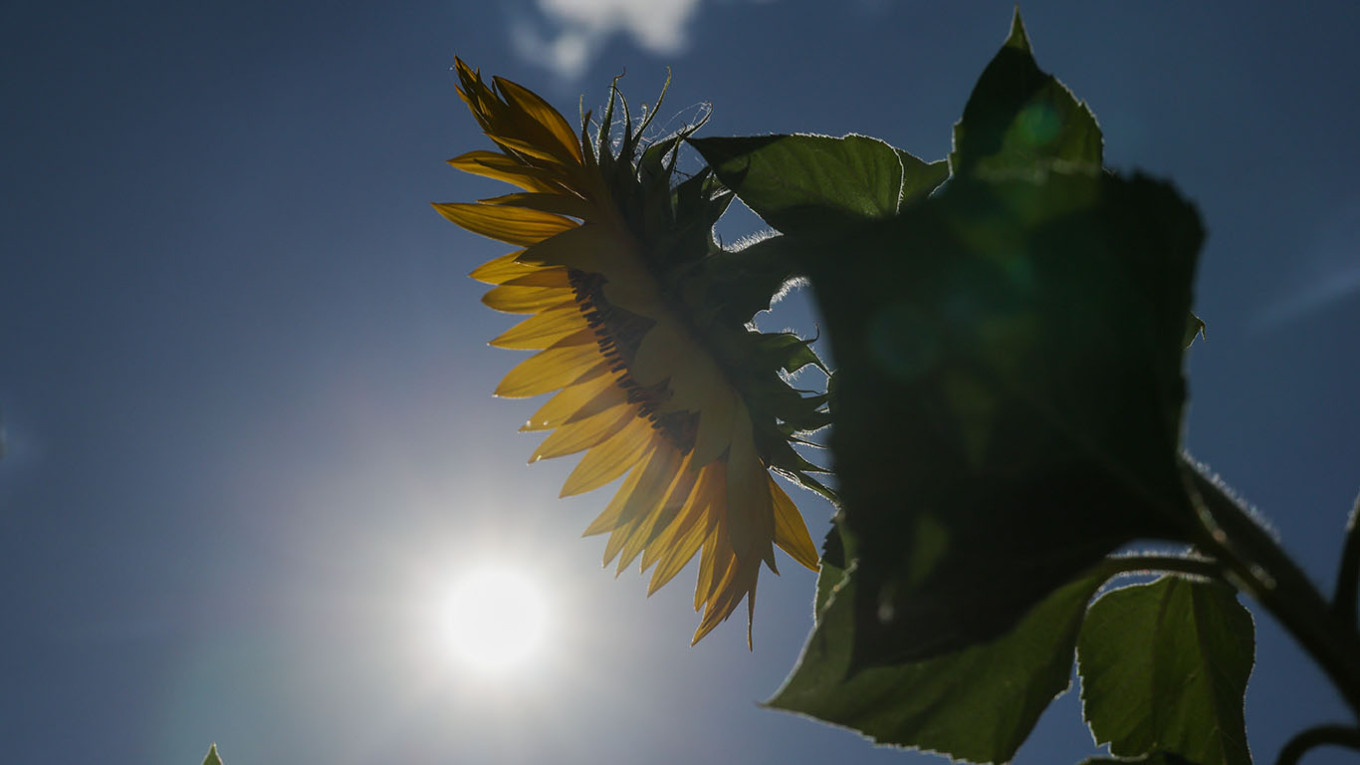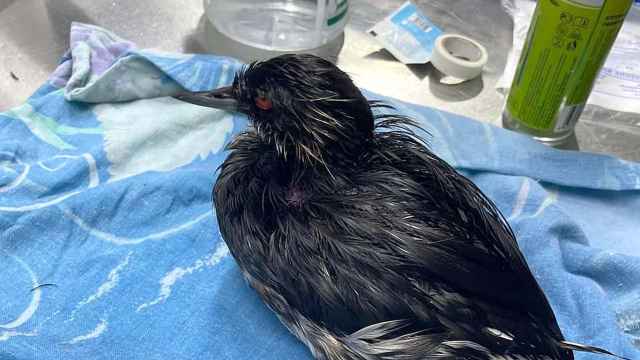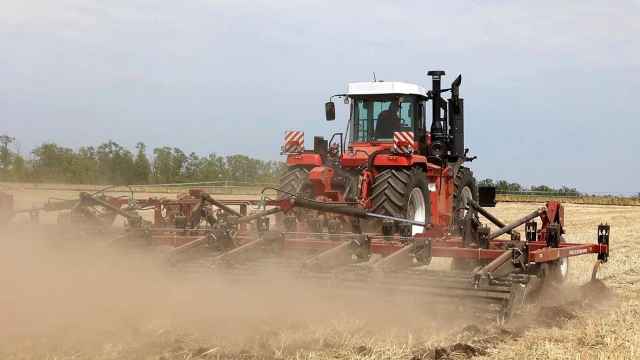Farmers in southern Russia are facing the potential loss of up to 25% of key crops due to worsening drought conditions in the country’s leading agricultural regions, the pro-Kremlin daily Izvestia reported, citing the Narodny Farmer association.
The Rostov and Krasnodar regions, traditionally among Russia’s most productive farming areas, have seen yields fall from about 62 centners per hectare last year to just 46 centners this season.
“Current yields in these regions have dropped by 25%,” Narodny Farmer deputy chairman Konstantin Yurov told Izvestia.
Authorities have declared states of emergency in 30 districts — 21 in Rostov and nine in Krasnodar — as extreme weather devastates fields of wheat, barley, corn and sunflowers.
Yurov warned that row crops like corn and sunflowers “will be virtually non-existent” in the hardest-hit areas.
Regional officials in Krasnodar estimate losses across grain, cereal and legume crops could total as much as 2.8 million tons. Yurov said many farms may not survive the year due to widespread crop failure and mounting financial pressure.
Lawmakers in the State Duma are now preparing proposals for federal agricultural subsidies.
“The ministry needs to immediately take on support measures to stabilize the situation and prevent bankruptcies in the agricultural industry,” said Sergei Lisovsky, deputy chairman of the Duma’s Safeguarding Competition Committee. Even previously stable farms, he said, are being forced to sell.
Regional leaders echoed the concerns.
Rostov’s acting Governor Yuri Slyusar revised the region’s harvest forecast down from 11 million tons to 8 million. Krasnodar Governor Veniamin Kondratyev also confirmed steep yield declines.
Despite local losses, Russia’s Agriculture Ministry maintains a national harvest forecast of 135 million tons, slightly above last year’s 129.8 million, citing strong results from the Central, Volga and North Caucasus regions.
While domestic food supply appears secure, experts say the drought could affect Russia’s grain exports.
Georgy Ostapkovich of Moscow’s Higher School of Economics warned that the agricultural sector remains highly sensitive to climate shocks.
“The agricultural sector must always be prepared for changes in production and export, given its high sensitivity to weather conditions,” Ostapkovich said.
A Message from The Moscow Times:
Dear readers,
We are facing unprecedented challenges. Russia's Prosecutor General's Office has designated The Moscow Times as an "undesirable" organization, criminalizing our work and putting our staff at risk of prosecution. This follows our earlier unjust labeling as a "foreign agent."
These actions are direct attempts to silence independent journalism in Russia. The authorities claim our work "discredits the decisions of the Russian leadership." We see things differently: we strive to provide accurate, unbiased reporting on Russia.
We, the journalists of The Moscow Times, refuse to be silenced. But to continue our work, we need your help.
Your support, no matter how small, makes a world of difference. If you can, please support us monthly starting from just $2. It's quick to set up, and every contribution makes a significant impact.
By supporting The Moscow Times, you're defending open, independent journalism in the face of repression. Thank you for standing with us.
Remind me later.






